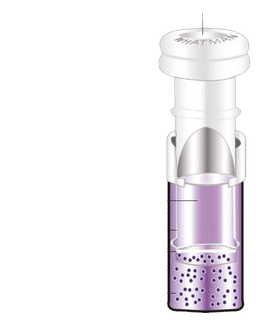To use all functions of this page, please activate cookies in your browser.
my.chemeurope.com
With an accout for my.chemeurope.com you can always see everything at a glance – and you can configure your own website and individual newsletter.
- My watch list
- My saved searches
- My saved topics
- My newsletter
Oil of clovesOil of cloves, also known as Clove oil, is an essential oil from the clove plant, Syzygium aromaticum. It is a natural analgaesic used primarily in dentistry for its active ingredient eugenol. It can also be purchased in pharmacies over the counter, as a home remedy for dental pain relief, mainly toothache; it is also often found in the aromatherapy section of health food stores. The oil produced by cloves can be used in many things from flavouring medicine to remedies for bronchitis, the common cold, a cough, fever, sore throat and tending to infections. The main oil-producing countries are Madagascar and Indonesia.[1] There are three types of clove oil:[2]
Product highlight
Oral useOil of cloves is known best for its anaesthetic properties. It is widely reported to be effective, and prior to the availability of safe, approved topical anaesthetic drugs, was used by some dentists. Clove oil is often used to relieve pain caused by dry socket, a possible complication of tooth extraction. Clove oil has an unpleasant taste, so it is advised to prevent the oil from touching the tongue. It is considered safe in very small quantities (<1500 p.p.m.) as a food additive. [3] However, clove oil is toxic to human cells[4]. If ingested in sufficient quantity or injected, it has been shown to cause life-threatening complications, including Acute Respiratory Distress Syndrome, Fulminant Hepatic (Liver) Failure, and Central Nervous System Depression; the lethal oral dose is 3.752 g per kg body weight[5][6][7][8][9] Topical useWhen applied to stop a toothache, it is best done with a cotton swab, applied directly to the side of the tooth, or directly on to the tooth, on the instance if a hole is present, to allow for the oil to absorb into the affected area.[4] Other usesIt is also used for anesthetizing and in higher doses euthanizing fish. Clove oil is also used in an all natural herbicide called "Perfectly Natural Weed & Grass Killer". The clove oil is the only active ingredient, and it is very effective at killing many types of plants. Clove oil has uses for antimicrobial and antifungal. It can be used for acne, warts, scars and parasites. Research has shown that clove oil is an effective mosquito repellent.[10] Clove oil is also used in oil painting. The anti-oxidant effects of the eugenol delays the drying (oxidation) of the drying oils (linseed, safflower, poppy, walnut) in the paint on the palette. A drop per paint 'nut' is usually added. Alternatively, the palette can be covered, with a small amount of clove oil applied to the inside of the cover to allow the clove oil to disperse, preventing the paint from reacting with the oxygen within the cover. This method has the advantage of not slowing the drying of the paints once they are applied to the painting. See also
|
|
| This article is licensed under the GNU Free Documentation License. It uses material from the Wikipedia article "Oil_of_cloves". A list of authors is available in Wikipedia. |







